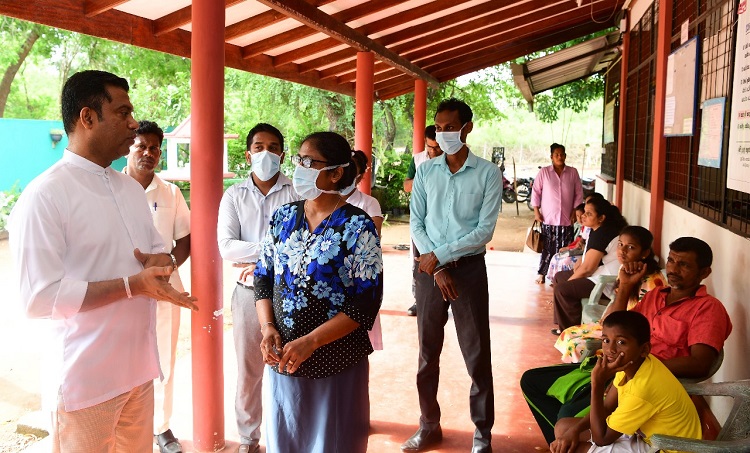Minister of Health and Mass Media, Dr. Nalinda Jayatissa, announced plans to enhance Sri Lanka’s rural healthcare system through the introduction of telemedicine technology and the phased increase of specialist doctors to deliver optimal health services nationwide.
He made these remarks during a recent inspection tour of several primary health care units and health centers in the Southern Province, including the Tissamaharama Beralihela Primary Health Care Unit, Mattala Central Dispensary, and the Kataragama Medical Officer of Health Office. The visit was aimed at identifying critical shortcomings and evaluating the current state of primary healthcare delivery.
Under the government’s new initiative to strengthen primary healthcare, rural, regional, and district hospitals will undergo renovations to improve diagnostic, laboratory, and patient care services. Information and communication technology (ICT) will also be integrated to manage patient data, facilitate access to specialist consultations, and promote public health education.
One of the key challenges highlighted during the visits was the lack of internet connectivity, which hinders daily operations and telemedicine integration. Additionally, staff at several centers raised concerns about inadequate space, transport issues, drug shortages, limited human resources, and aging infrastructure.
The Minister commended the Tissamaharama Beralihela Primary Health Care Unit for its commendable performance in the Dakshina Suwaviru competition and underscored the importance of establishing community-based primary health centers within a 3-kilometer radius, ideally serving approximately 7,000 residents across five Grama Niladhari divisions.
Dr. Jayatissa also emphasized a shift in approach — bringing health services closer to the community rather than waiting for patients to come to hospitals. He further stated that maternity and child health clinics operated by Family Health Service Officers will be modernized, fostering a more people-centered, proactive healthcare system.
Recognizing the limited number of around 2,000 specialist doctors currently in the system, the Minister noted that it’s not feasible to station a specialist in every regional hospital. As a solution, telemedicine will be deployed to connect patients at primary centers with specialists at main hospitals. Over time, the number of specialists will be increased to support this model.
Medical officers and staff from the Kataragama, Tissamaharama, and Mattala health institutions participated in this inspection tour and provided updates on their facilities and services.














